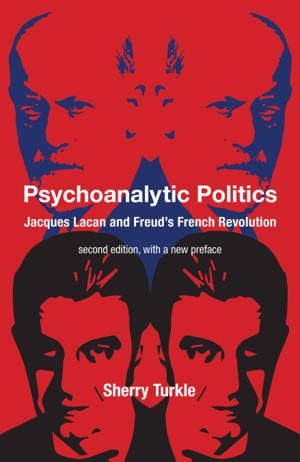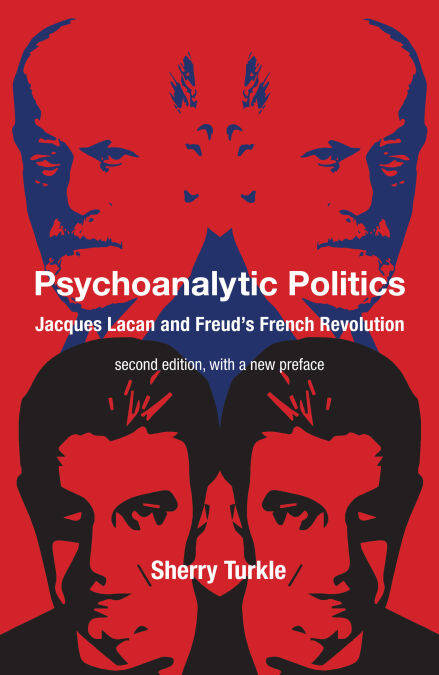
- Retrait gratuit dans votre magasin Club
- 7.000.000 titres dans notre catalogue
- Payer en toute sécurité
- Toujours un magasin près de chez vous
- Retrait gratuit dans votre magasin Club
- 7.000.0000 titres dans notre catalogue
- Payer en toute sécurité
- Toujours un magasin près de chez vous
24,63 €
+ 24 points
Description
An updated edition of the seminal book that explores why the interest in psychoanalysis in France exploded after 1968 and what it says about culture and therapy.
Among Western countries, France may well be the one that resisted Freud the longest. But, in the late 1960s, France was seized by an infatuation with Freudianism. By the end of that decade, France had more than a psychoanalytic movement: it had a widespread and deeply rooted psychoanalytic culture. At the heart of this development was Jacques Lacan's reconstruction of Freudian theory, a reinvention of psychoanalysis that resonated with French culture in the aftermath of the uprisings of 1968. In Psychoanalytic Politics, the second edition of her groundbreaking work, Sherry Turkle tells the fascinating story of Lacan and why his work so profoundly influenced the French psyche.
While in the United States psychoanalysis is identified with an essentially conservative medical establishment, the French rediscovery of Freud, in a dramatic enactment of Freud’s prophesy, became associated with the most radical elements of French philosophical and political life. In this book, Turkle provides a firsthand account of the psychoanalytic culture that developed in France—as a politicized, Gallicized, and poeticized Freudianism, deeply marked by the work of Jacques Lacan. The clearest introduction in English to Lacan's teaching, Psychoanalytic Politics explores how cultures appropriate theories of mind and how ideas come to connect with individuals. The book’s final chapter provides a fascinating portrayal of the last years of Lacan’s life—the intrigue and power struggles that resulted in the break-up of the Freudian School he founded and the events that unfolded in the years following his death in 1981.
This edition includes a new preface by the author, reflecting on the origins of the book and its relevance for today: a time when the integration of thought and feeling, politics and self-examination is as urgent an endeavor as ever.
Among Western countries, France may well be the one that resisted Freud the longest. But, in the late 1960s, France was seized by an infatuation with Freudianism. By the end of that decade, France had more than a psychoanalytic movement: it had a widespread and deeply rooted psychoanalytic culture. At the heart of this development was Jacques Lacan's reconstruction of Freudian theory, a reinvention of psychoanalysis that resonated with French culture in the aftermath of the uprisings of 1968. In Psychoanalytic Politics, the second edition of her groundbreaking work, Sherry Turkle tells the fascinating story of Lacan and why his work so profoundly influenced the French psyche.
While in the United States psychoanalysis is identified with an essentially conservative medical establishment, the French rediscovery of Freud, in a dramatic enactment of Freud’s prophesy, became associated with the most radical elements of French philosophical and political life. In this book, Turkle provides a firsthand account of the psychoanalytic culture that developed in France—as a politicized, Gallicized, and poeticized Freudianism, deeply marked by the work of Jacques Lacan. The clearest introduction in English to Lacan's teaching, Psychoanalytic Politics explores how cultures appropriate theories of mind and how ideas come to connect with individuals. The book’s final chapter provides a fascinating portrayal of the last years of Lacan’s life—the intrigue and power struggles that resulted in the break-up of the Freudian School he founded and the events that unfolded in the years following his death in 1981.
This edition includes a new preface by the author, reflecting on the origins of the book and its relevance for today: a time when the integration of thought and feeling, politics and self-examination is as urgent an endeavor as ever.
Spécifications
Parties prenantes
- Auteur(s) :
- Editeur:
Contenu
- Nombre de pages :
- 494
- Langue:
- Anglais
Caractéristiques
- EAN:
- 9780262378918
- Date de parution :
- 22-07-24
- Format:
- Ebook
- Protection digitale:
- Adobe DRM
- Format numérique:
- ePub

Les avis
Nous publions uniquement les avis qui respectent les conditions requises. Consultez nos conditions pour les avis.






